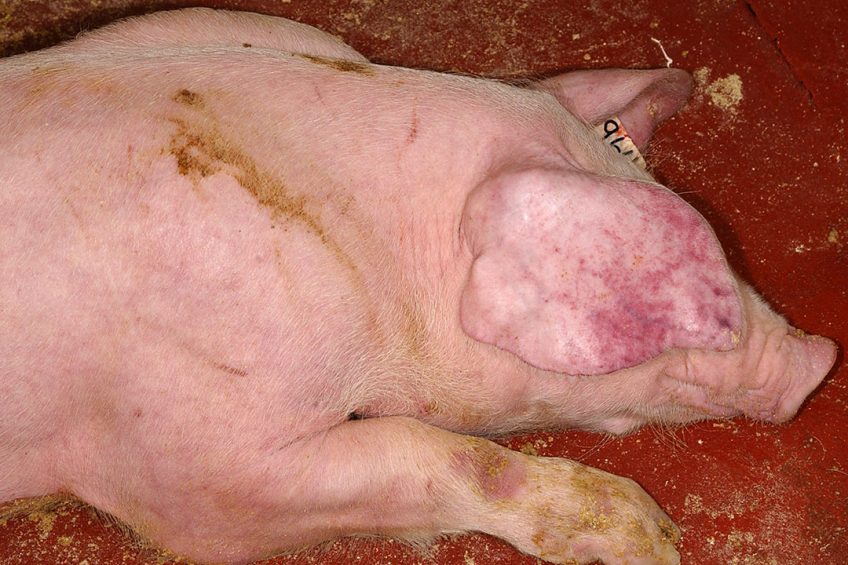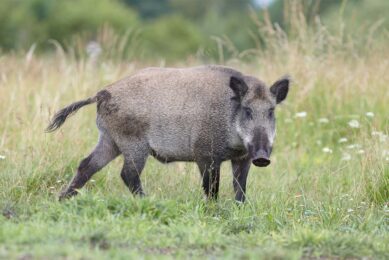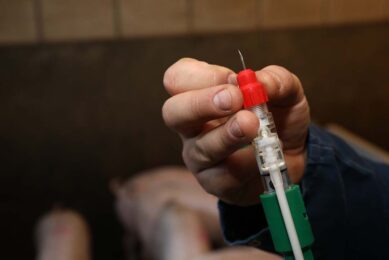ASF Greece: Detection of virus in breeding farm

Greece detected its 1st-ever case of African Swine Fever at a backyard farm in the north of the country this week, agriculture ministry officials said on Thursday.
The infected finishing pig was confirmed positive on a small farm near the town Serres, in the province Kentriki Makedonia, a region of northern Greece close to the border with Bulgaria and North Macedonia. It was confirmed that ASF was found on February 5; after initial suspicions, measures had been put in place since February 3.
The farm had 32 pigs of which 1 pig had died of ASF. The remainder of the animals was culled. Late on Friday, February 7, the outbreak was confirmed by the World Organization for Animal Health (OIE). The location of the farm is about 60km from the border with Bulgaria.
According to the ministry the trade of pork meat from the area has been banned.
1st case of ASF in Greece
For Greece it is the first case of African Swine Fever (ASF). Agriculture minister Makis Voridis explained that the authorities took a series of measures to contain it, press agency Reuters wrote. All farmed pigs in an area of 3km around the farm were culled. Animals were not allowed to enter or exit areas within a 10km radius, while tests were being conducted to trace the origin of the disease.
Voridis said, “Unfortunately, it appeared in our country. We are on alert, we are on standby, but we are also absolutely ready to act as appropriate to contain the disease from spreading and protect our livestock.”

Track the movement of African Swine Fever
For everything you need to know about ASF, from the latest outbreaks to controls stay up to-date…
Greece: Importing most of its pigs
Greece produces about a third of its domestic pork consumption and imports the rest. In 2017, the country had about 744,000 pigs, according to statistics by the Food and Agriculture Organization (FAO) of the United Nations.
ASF has been spreading through Europe bit by bit in recent years. Ever since it was detected in the Caucasus in 2007 it has since spread to 19 countries in Europe, of which 11 are now a member of the European Union.
Other EU affected countries include:
- Estonia
- Latvia
- Lithuania
- Poland
- Slovakia
- Hungary
- Romania
- Bulgaria
- Belgium (last freshly infected carcass found in August 2019)
- Czech Republic (only country to be declared free from ASF)
Last month, Serbia saw an outbreak of ASF in wild boar in the east of the country, close to its borders with Bulgaria and Romania. Early January, Bulgaria said that it would cull tens of thousands of pigs after detecting an ASF outbreak at a farm in the northeast.
African Swine Fever in Poland
In a different European country, Poland, the ASF situation has been worrying swine producers in Western Europe, especially as in recent months the virus also showed up in wild boar in a separate area in the west of the country. Since mid-January, the virus is as close as 12 km from the border with pork powerhouse Germany.
During this week, more outbreaks locations were reported, mostly in the north eastern part of the infected zone in Western Poland. The total infected area in the west of the country, measures 79km east to west and 62km north to south. In total in that area dead wild boar have been found on 238 locations, with at least 371 victims. In Western Poland, no domestic swine farms have been reported infected, so far.
 Beheer
Beheer








 WP Admin
WP Admin  Bewerk bericht
Bewerk bericht